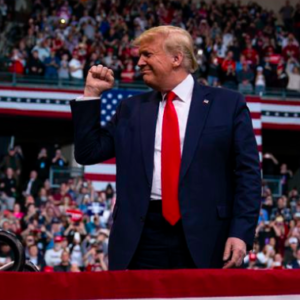Many pundits have speculated that the Donald Trump era is ending. It may be experiencing a low after the midterm elections, but the loyalty of his base is so deeply entrenched that Trump and his base are likely to be influential for many years to come. Examining the Trump phenomena from a behavior psychology viewpoint tells us why.
Behaviorists seriously understand that all species seek pleasure and avoid pain. Training an animal, for example, means systematically gaining its attention and reliably providing rewards. Human behavior works on the same principles. We may differ only in the variety and range of our rewards and punishments.
How Trump gained deep loyalty in his followers is a case study of how behavioral principles work and how the former president applied them.
Gaining attention is an excellent place to start. Trump excels in drawing eyeballs, as they say in the media. During the former president’s term in office, experts estimate he used Twitter 25,000 times. No other president, possibly no other human, maintained such attention during his followers’ daily life.
In animal training, subjects are often kept a bit hungry to increase their readiness for food. Trump found a food-ready population that felt ignored, aggrieved and angry, eager to be fed his message. The rewards he provided were many, but “sticking it to the liberals” stands out as a favorite. His direct and often crude attacks were like giving prime steak to a population ready to be fed. Intense loyalty began.
Americans disgruntled with the country’s direction fill the ranks of Trump’s followers. “Make America Great Again” was a brilliant slogan that captured the distrust of a government that favors policies addressing climate change, social change and the conditions of immigrants but not their needs.
Early in 2016, Trump introduced the concept “Fake News,” a spectacular move from a behavioral standpoint because it limits the value of his opponent’s rewards. It blocks transmission and reinforcements from his adversaries. It creates a silo of information that restricts opposing “truths” while making his rewards more robust.
The January 6th Congressional Committee is a good example. Seen by Democrats as detailed proof of Trump’s malfeasance, the evidence has had little or no discernable effect on the 45th president’s supporters. His supporters didn’t listen or watch. They interpreted it as another example of political noise or a “witch hunt,” as the former president labeled it. Trump repeatedly said that he was being persecuted by the left, and they believed him.
Trump’s rallies are extraordinarily rewarding to his acolytes. Trump’s rambling speech may appear incoherent to his adversaries but are highly rewarding to his acolytes when sprinkled with digs and outrageous remarks. Playground-style nicknames were especially popular. They are a powerful reinforcer for his loyal constituents.
Blocking oppositional reinforcement while providing massive rewards builds deep loyalty. Such loyalty is tough to extinguish.
Trump is another example of how reinforcements guide behavior. Attention is his emotional food. Without it, he would emotionally die.
Few deny that Trump is a narcissist. Narcissists have an almost insatiable need for attention and praise. His rallies are perhaps the grand reward where his aides report his euphoria on the order of a drug high. His devotion to right-wing media and all sources of adulation feeds him further. Even interviews with journalists who criticize the former president are sought, despite their ultimately unfavorable writing, indicating how great Trump’s narcissism controls him.
The focus on civil rights, women’s rights, immigration, and fast-changing gender developments left White males wondering about their place in our country. On the left, politicians failed to appreciate fully the anger and angst of working middle-class White men, leaving them unheard and angry — a ripe apple for the MAGA message to pick and exploit. Nationalism and reminiscence look attractive and rewarding in that context.
People who believe deeply that the former president is working for them believe him no matter what. When told a lie that the other guy stole the election, they honestly believe him. He has trained them, given them numerous rewards and built their loyalty where others have not.
Trump’s addicted and conditioned followers will not quickly leave him. They are intensely committed. That spells big trouble for the Republican Party.

